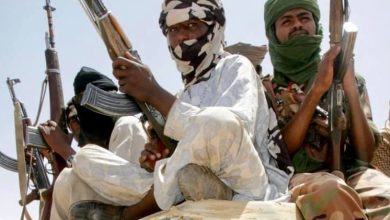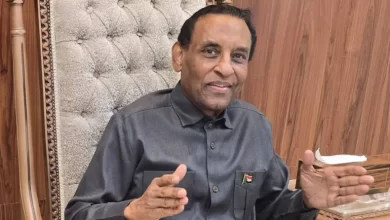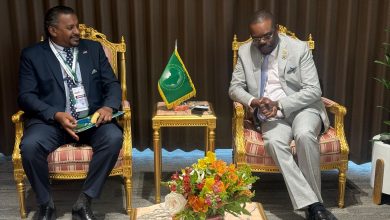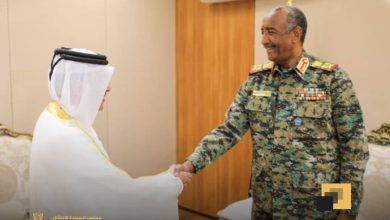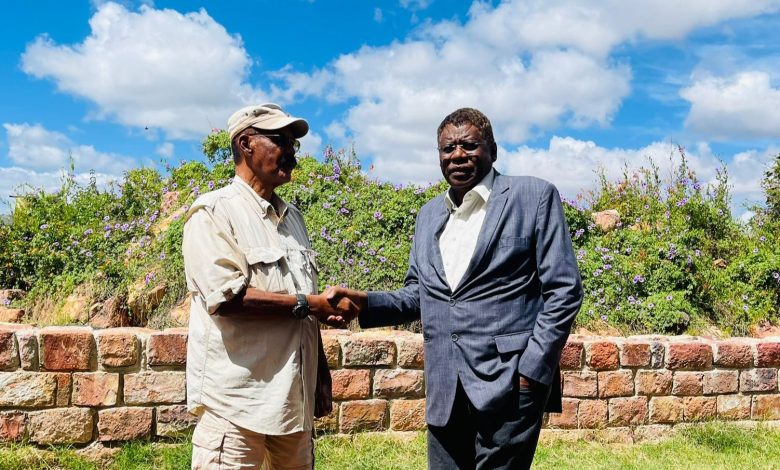
– Support and victory for the army are essential for rebuilding Sudan
– I asked Hamidti about his animosity toward the army, but I did not find a convincing answer
– The Sudanese army is the foundation for building the state. Neighboring countries that oppose Sudan do not have their own decisions
– Sudan is a Victim of Power Struggles
– Neighboring countries have become platforms for external conspiracies
– Mediation initiatives have turned into “political bazaars.”
– The front line of the war in Sudan is Darfur
– Sudan is present in the trilateral alliance
Asmara – Editor-in-Chief
Eritrean President Isaias Afwerki revealed the secrets of the last visit of “Hamidti” to Eritrea one month before the outbreak of war, confirming that support and victory for the army are crucial for rebuilding. He stated that Sudan meets all criteria for building an advanced state in Africa, accusing some neighboring countries of seeking to dismantle it through the army, which he considers the backbone of the state. He regarded Darfur as the front line of the war.
In a meeting yesterday morning with a group of Sudanese journalists visiting the Eritrean capital Asmara, Afwerki stated that his country refrained from intervening in mediation efforts to resolve the Sudanese crisis because the initiatives have turned into “bazaars” incapable of producing a solution for a war that will not only consume Sudan but the entire region, emphasizing that “Sudan is central to regional stability.”
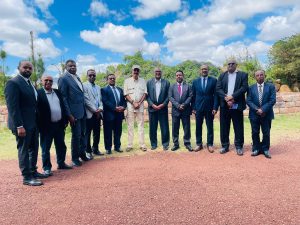
Afwerki asserted that external parties play an influential role in Sudan because it is a “power struggle” aimed at dismantling Sudan and its army, stating, “Sudan must emerge from the quagmire of foreign agendas.” He described some neighboring countries that oppose Sudan as “having no sovereignty,” warning that Sudan and its people could become victims of regional agendas. He added that the solution to the Sudanese crisis does not lie in the hands of international and regional organizations, and Sudanese people do not need lectures on how to build a state.
Afwerki emphasized the sanctity of the Sudanese army, describing it as the backbone of the Sudanese state, stating that without it, the state cannot be built. He revealed details of the last visit of the rebel leader to Eritrea, calling him “the simplest living being.” He said, “I asked him about the reasons for his animosity toward the Sudanese army, but I did not find a convincing answer from him.”
Hamidti visited Asmara for one day on March 13, 2023, one month before the outbreak of war. He conveyed to Afwerki Sudan’s need to import agricultural technology from Israel, but the Eritrean president responded that the Gezira Project financed 10% of Britain’s budget, indicating that Sudan possesses agricultural expertise and the ability to develop it without needing anyone.
In commenting on the current political and ideological disputes among Sudanese, he stated, “Any honorable person should not contribute to the dismantling of Sudan,” urging Sudanese to prioritize the transition to “safety” by building a strong united front and preparing for the post-war phase. He stressed the importance of establishing political, media, and diplomatic fronts to support the army in its battle.
Regarding the military situation in Sudan, Afwerki stated, “Darfur is the front line,” as it is the focal point of external plans to fragment Sudan’s unity and expand foreign influence in the region. He warned of the continued flow of arms to the rebels through neighboring countries that have become platforms for passing external conspiracies.
Afwerki stated that he rejected the UN’s invitation to open refugee camps for Sudanese who crossed the border into Eritrea, saying, “We did not set up a single tent; Sudanese are at home, and what the Eritrean citizen does is a moral duty.” He refused to describe this as a favor from Eritrea to Sudan, but rather a duty that does not seek thanks.
On the situation in the region, the Eritrean president called for what he termed “building the neighborhood,” specifying the scope of this “neighborhood” as encompassing four corners: the Nile Valley, the Horn of Africa, the Red Sea, and the Gulf. He stressed that regional countries should work based on the principle of building stability throughout the region because instability in any of these countries leads to the spread of contagion to the others.
In response to a question about Sudan’s absence from the trilateral meeting in Asmara that brought together Egypt, Somalia, and Eritrea on October 10, 2024, Afwerki said, “Sudan is present in this alliance and does not need an invitation.”
